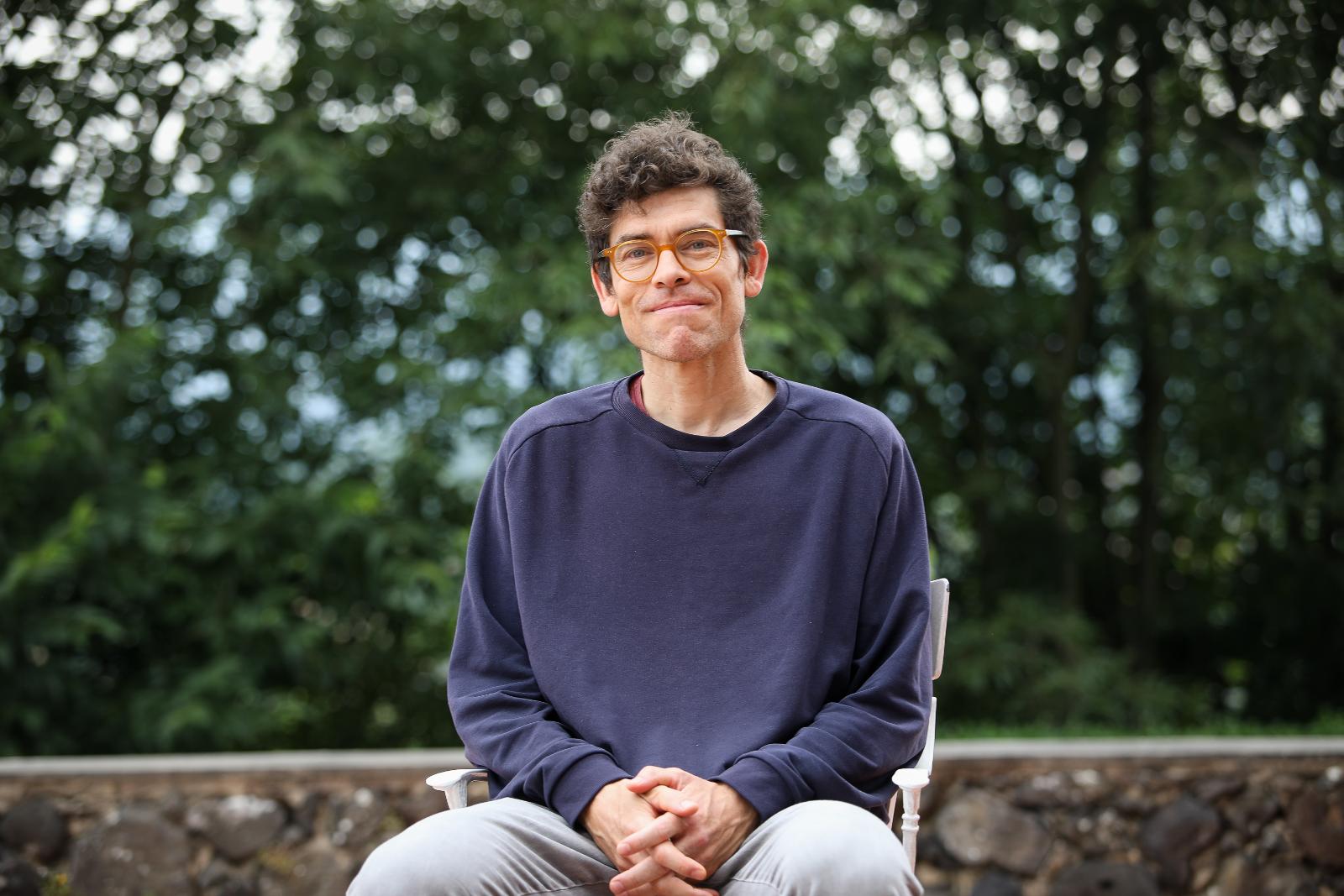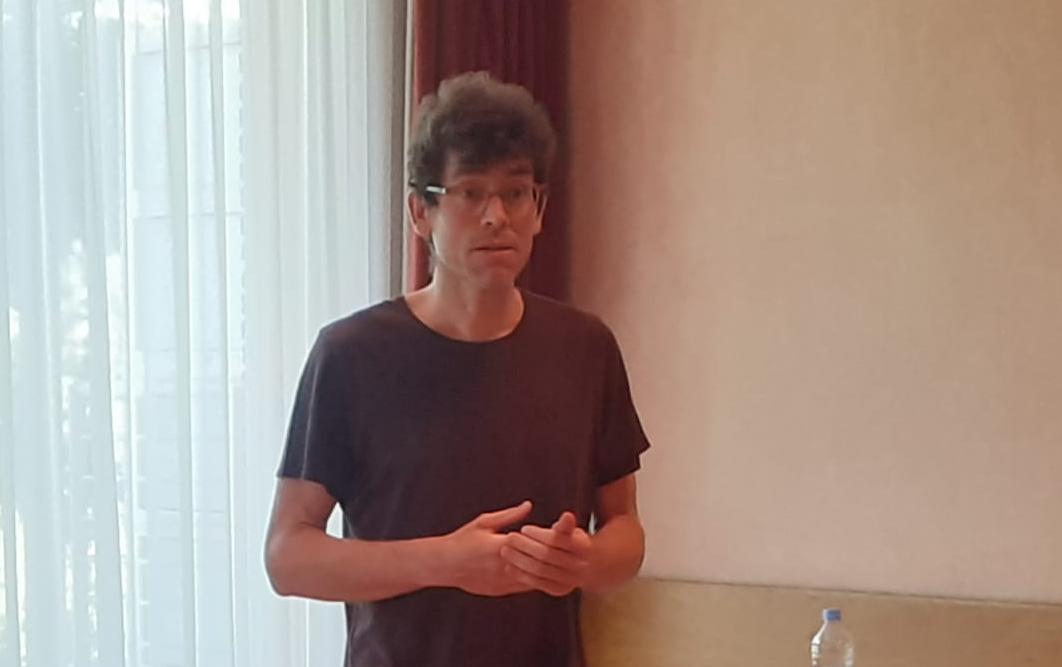Collective residencies / Let's consider borderlands / Olot
BERNAT LLADÓ MAS
From Tuesday, 7 June 2022 to Tuesday, 14 June 2022

Bio
Bernat Lladó Mas is a Doctor in Human Geography (Universitat Autònoma de Barcelona, 2010). Their fields of recearch are related to the History of Gegraphy and Cartography; the epistemology of Geography; and the European territorial culture. He teaches at the UPF (Universitat Pompeu Fabra, Barcelona) and Euroaula (Escola Universitària de Turisme, Barcelona). He has participated in several projects abous Art and Geography. His latest books are "Franco Farinelli. Del mapa al laberinto" (Icària, Barcelona, 2013), and "Seguint els passos d'El Turista. Una guia de viatge pel pensament de Dean MacCannell" (La Bibliogràfica, Caldes, 2020).
Project
The project Thinking Border Spaces aims to think the borders through various disciplines and academic practices. In recent years this topic has been studied no only by political scientist, but also by geographers, literary critics, writers and artists. With this residence, we want to work together with different academic and professioal profiles in order to observe and interpret border spaces from new perspectives.
I arrive at the FaberLlull residence to meet with a group of writers, academics, travelers and artists to talk and discuss about the border. I come from Geography, and in my head I have mostly territorial borders; but I know that before coming to Olot, I have first had to cross a temporal border. I have left behind the continuity of everyday things to immerse myself in a new rhythm that I had not foreseen. And I wonder if this is just what happened to Fina, the hairdresser in La felicidad de un pollo al ast (Marta Soldado, el Otro editorial, 2018) when she left behind the "too white tiles" of conventional life to explore those territories that hide beyond everyday borders. So, I try to fix as much as I can the things that hold me back at home, and I travel straight to the country of the "dark" rocks. There another frontier awaits me, which will not be spatial either.
As one of the residents speaks only English, we wisely decide that this will be the language in which we communicate. Everyone speaks English well; I, on the other hand, barely understand her. Linguistic boundaries can be as solid as stone or concrete walls. But since we have come here to talk about borders, I decide to accommodate myself; to settle on that boundary between understanding and ignorance. Perhaps at another time and in another context, I would shy away from this border; even so, here, I decide to live it, to inhabit it. To do so, however, I know that I must adopt another strategy, communicate in another way. I exaggerate my whole repertoire of gestures and body expressions; I amplify the movement of my eyes and eyebrows; I show a receptive attitude at all times. I am aware that all this dramaturgy is not my forte either; but I try.
Body language (hand attitude, body gestures, facial muscles) must be prior to any oral language. That is why it will also be the most universal, in spite of having its dialects and generating its confusions. Then, I realize that what hinders us most when it comes to crossing physical boundaries, the body itself, is precisely the only thing that allows us to communicate with everyone.
I have a glass wall in front of me and I can't get through it, but if someone on the other side is laughing and having a good time, even if I don't hear or understand them, I start laughing spontaneously, in a coordinated way. This is the border space that I have lived in the FaberLlull: the experience of glass, body communication and cross-border laughter.

